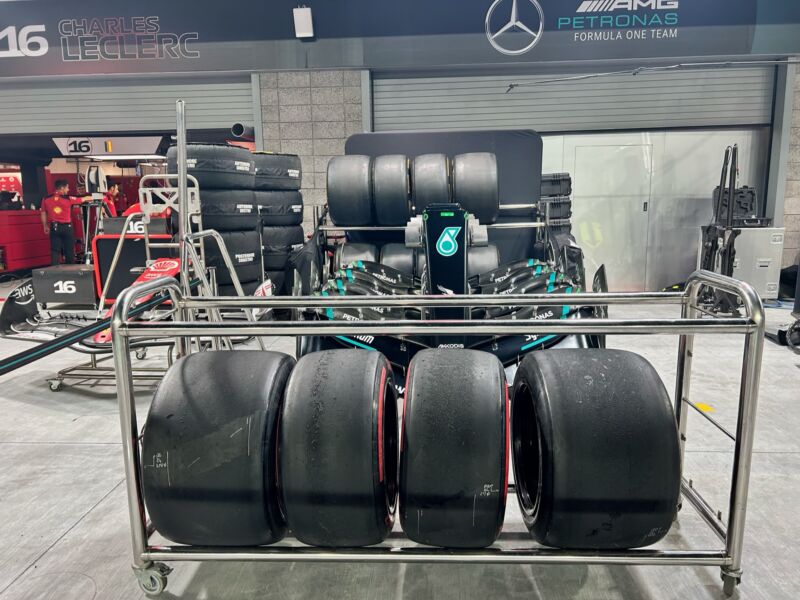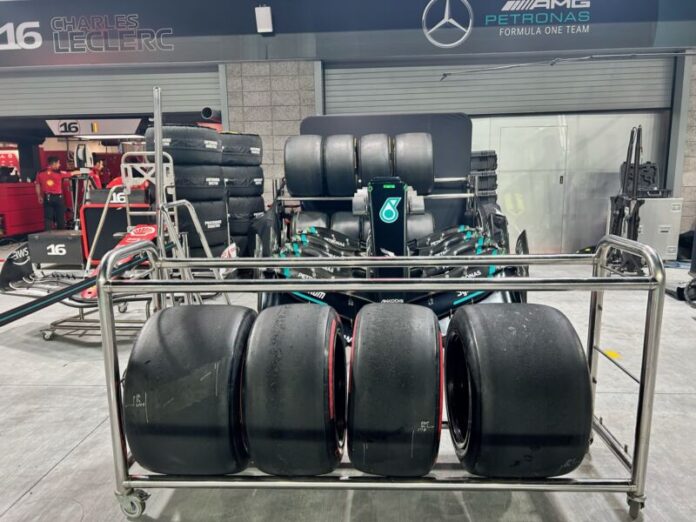
Enlarge (credit: Roberto Baldwin)
LAS VEGAS—It was cold this past weekend at the first Las Vegas Formula 1 Grand Prix. Winters in the desert are notoriously chilly, and it didn't help that the race organizers decided to start the spectacle at 10 pm local time.
The issue was the tires—they're not developed to handle frigid weather. Teams were tracking air temperatures and formulating plans to keep their cars on the road instead of sliding into a wall. There was some relief the night of the race, as the weather was warmer than it was during Friday night's qualifying session. At the start of the race (according to Weather Underground) it was roughly 60° F (15.5° C), and the actual lowest air temperature was still 10° F warmer than the historical average for November 18; turns out climate change is real and happening.
There's nothing subtle about Formula 1. Big egos, big money, big tracks, and thanks to a certain Netflix show, big-time fan growth in the United States. But at its core, the actual cars themselves, relatively speaking, don't have that big of an impact on the environment. Sure, they're loud V6 engines, and the tires get depleted quicker than a pizza at a children's birthday party; but transporting the cars and pit equipment and tires and team members to each race uses far more energy than the race itself. And of course, if you factor in fans flying in from all over the world for the 23 races per year, you get a larger carbon footprint than, say, your kid's soccer game.
Read 8 remaining paragraphs | Comments
Ars Technica - All contentContinue reading/original-link]




